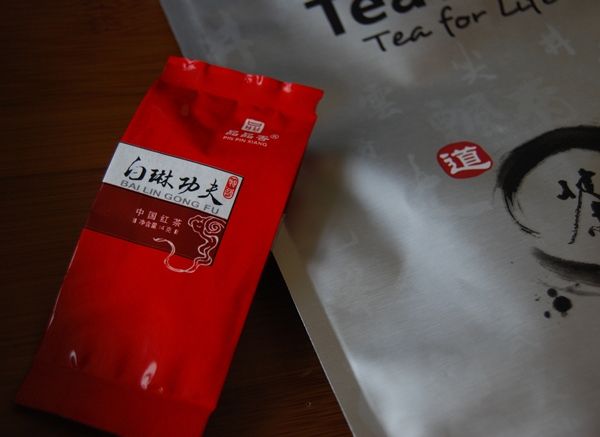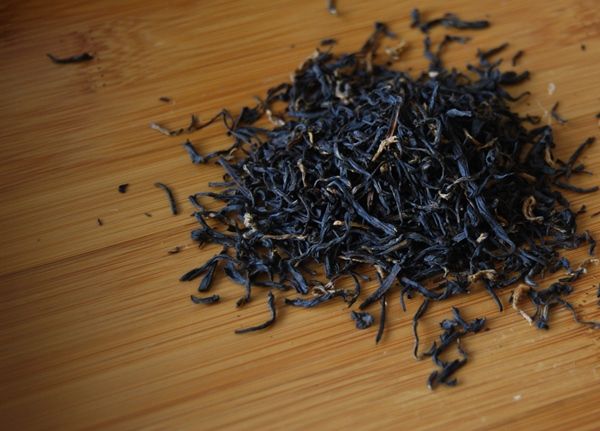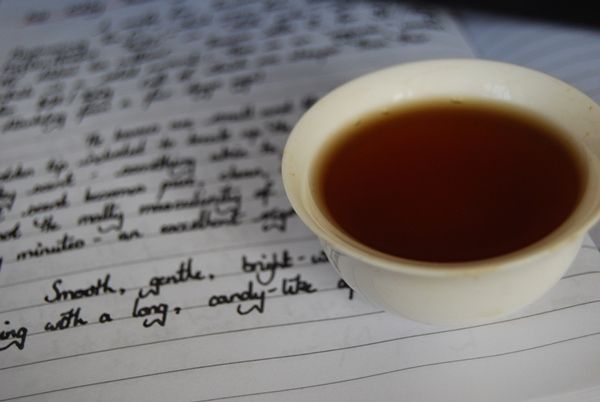I don't drink a lot of Bailin Gongfu, but Fujian's premier hongcha is "up there" in my estimations, along with Dianhong and Qihong. Many thanks to the chaps at TeaVivre for sending me the sample that forms the basis of today's article. Any excuse to drink good hongcha is welcome.
As with many hongcha or wulong, this comes in prepackaged little bags, and is made by an outfit called the "Pinpinxiang Tea Co." The tea is, so it is claimed, produced from the "proper Bailin" area, in Fuding County of Fujian Province. TeaVivre sells this for $9/100g, while an "organic" version is sold for $14/100g
Some days, only hongcha will do. This tea is immensely fragrant; somehow, it has the scent of lychee. I don't know how that might be possible, and yet it is exactly that: lychee. Delivered into the aroma cup is a solid, enduring sweetness that reminds you good hongcha still exists. The scent lasts for at least two minutes, which is most unusual, and ma very good sign.
Look at the image above and tell me that you feel nothing. It is impossible, surely, not to fall in love with a hongcha that brews the colour of Burgundy. This isn't masculine dianhong, but rather something gentle, elegant, sweet, and altogether bright. It is, dare I say it, almost cheering. When the English spring rains have been falling for weeks, you really begin to appreciate a tea like this. Afterwards, a long candy-like scent lingers. I rather fancy trying the more expensive version, just to see if the quality increases, or if one is paying more for the organic certification.
Fine stuff. Lovers of hongcha take note.




3 comments:
Good Bailin costs more than $10/100g. You're either quite easy to please when it comes to hongcha, or Teavivre is giving you (everyone) a very nice deal. Given what we know of tea merchants, I think you're the softie here. ?:~)
--shah8
Oh, I'm definitely easy-to-please with hongcha. :)
Hongcha is in the cultural DNA here...
Toodlepip,
Hobbes
Interesting. The site's picture of the liquor is a blah yellow. Yours is like a gorgeous little shu-pu.
Always down for a good Hongcha! Thanks for posting about it.
~Jess
Post a Comment